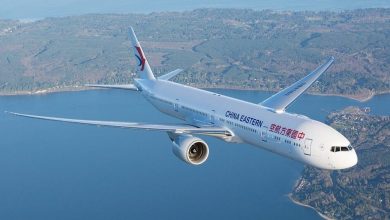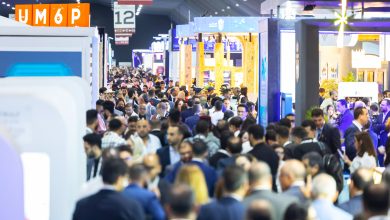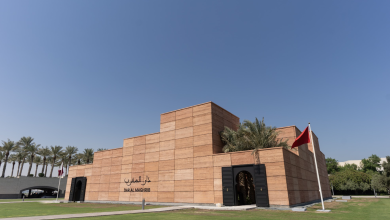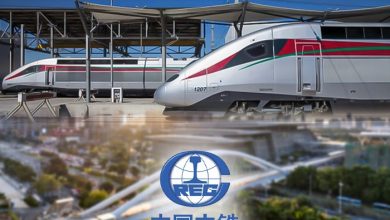“Moroccan-Chinese Relations : A locomotive for african development”
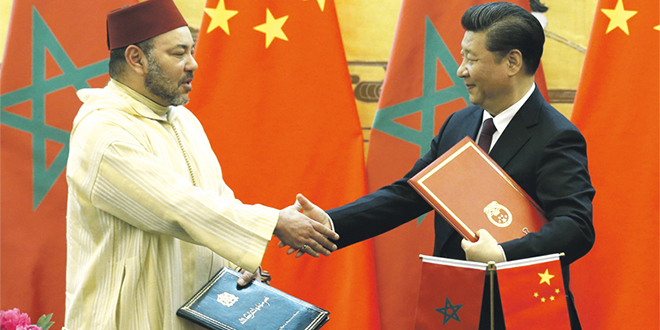
Part 1: By Pr. Amine LAGHIDI*
In my international Conferences as well as in my Master Courses dedicated to Moroccan Foreign Trade, Investment and/or Economic Development, there is always a chapter about Africa, my Continent of Heart and Belonging, and often a Key Chapter dedicated to China.
I usually start the Chinese Chapter, by speaking not only about the growth numbers and economic Key figures, but by highlighting the most important pillar of all, the One that many ignore, while it remains the foundation to all prosperous, mutually beneficial, respectful and sustainable relation between nations.
I start by speaking about “The People”.
In order to avoid any bias or reductionism, I seek to trigger curiosity within the public to do more research and build an in-depth understanding on:
1/ The Fundamentals of the Chinese Culture that cements and guide the nation at the present (with a focus on Confucius and Lao Tzu teachings).
2/ The key referential from the past and rich history of the country (Chinese Spring and Autumn 771 to 476 and 403 BC, Chinese Historic Figures, Expeditions and Treaties)
3/ The aspiration toward the future in the near and Long Term. (Yearly Work Report presented by the Prime Minister to the Chinese President, Beijing Declaration toward China Africa Cooperation, Belt and Road initiative)
Understanding the other is important but understanding oneself is as much if not more important to make any relation succeed.
This exercise leads to a mirror effect, that help us focus on the common goals and challenges, rather than divergence points, leading ultimately to build functional bridges at the present and joint concrete projects in the near future.
When doing so, one can only admire the number of correlations between Morocco and China:
1/ History: it comes always as surprise that the most advanced Medieval World Map was made by Moroccan Scholar and cartographer “Charif Al Idrisi” (1100 – 1165), a map that detailed the geography of the world, including a Minutious representation of China and Africa in the best available way possible back then. A Map that served as a reference for renowned explorers such as Columbus and Vasco di Gama in their travels. Drawing a map at that time, led to shaping the common perception of the space and geography of Kings and Rulers, building in fine the world economic and political ties. An advanced Map, led to advanced Relations.
History provides us with other agreeable surprises. Moroccan Traveler, Scientist and adventurer, “Ibn Battuta” and Chinese Admiral and Diplomat “Zheng He” visited each other’s Continent (Respectively Africa and Asia) almost at the same time. Few decades only separated them. While a hunger for knowledge, discovery and science united their endeavors. Both Men left us with amazing records about the nations and countries that they crossed during their travel. Historic records stating that friendships were built, and respect shown.
Centuries before those epic expeditions, the urge was to develop more and “independent” knowledge of our own continents first, synonymous of Peace, Political alliances and Prosperous Trade. That was the spirit carried in 138 BC, by Zhang Qian, who took leave from the Chinese Emperor Han Wudi to explore most of Asia, discover new trade routes and shape alliances with Asian Kingdoms and Tribes. At that time Morocco (Called Mauretania by historians) was Sovereign and Prosperous Nation, a True Bridge between Africa and the Mediterranean Culturally and Economically, and one of the Rare Nations in the region to entertain good relations and enjoy freedom from the Mighty Roman Empire (especially after the fall of Carthage in 146 BC).
Centuries ago, a naval expedition left the coastal city of Lixus in the north of Morocco, with over 60 ships, according to Roman historian Pliny the Elder, with the same aim and aspiration as Zhang Qian: building peace with the neighbors and enhancing common prosperity through the establishment of Trade Routes within the African continent and linking Africa the World. Today’s Morocco has taken this Role to a higher Dimension, Upon the High Instructions of His Majesty King Mohamed VI, the country became a Major actor for peace and the locomotive of prosperity and development in the continent. A true Advocate for an independent, sovereign Africa and yet proudly open to the world.
Morocco and China have always assumed a historic responsibility within their respective continents and Regions, as role models in peace, prosperity, stability and a Regional Pharus of culture and science.
This role is today sublimated by the partnership initiated by the Leaders of the two nations. Last Monday 31 August 2020 a joint phone discussion took place between His Majesty King Mohammed VI and His Excellency President Xi Jinping. A call where President Jinping thanked Morocco for its help and support at the early phase of the pandemic. Both leaders agreed to work together to push forward the research and development of the COVID 19 Vaccine, Africa will be a key beneficiary of this joint effort.
This Medical partnership will also support the political and economic relations between the two countries. Relations that have been strengthened thanks to the Official visit of His Majesty, King Mohammed VI, to the People’s Republic of China in May 2016 and His Meetings with President Jinping.
The enhancement of the Sino-Moroccan Relations are expected to serve as an active dynamo in the locomotive of African Development.
Morocco was and remains a strong advocate for Africa’s independence, sovereignty and openness to the world.
2/ Culture also seems to be a bridge between our nations: Both Countries have been unfold to their neighbors, building a strong tradition of Tolerance, Openness while maintaining a strong and original culture of their own.
In the main time both nations have an interesting dualism that serves them well: a dynamic combination of “Modernism and Respect of Tradition”, “Social Solidarity and Active Ambition”, “Faithfulness to historic Alliances and Openness to Multilateralism”,
3/ The future: Reading the Work Reports presented by the Chinese Prime Minister, every year, tells us clearly of China’s Ambition to develop its Middle Class, in a vision of creating prosperity for All Chinese. That ambition will shift China from an industrial exporter to a knowledge and immaterial economy exporter. Chinese exports in the near future will include more Cognitive Value than material components. R&D, Engineering, Strong Brands, Tailor Made Marketing, Chinese Culture, and Life Style, Local knowledge of the targeted markets… shall become the main pillars of the new Chinese exports and foreign Trade Model.
Morocco, thanks to King Mohammed VI Vision and High instructions, has made the choice of building an ambitious development model for Moroccans, By Moroccans, where the Citizen is the key actor and the main beneficiary. Such a model requests a high investment in our People, and the enhancement of High Value Added Economy and Exports.
This correlation in the objectives will eventually lead to Morocco and China collaborating in new economic fields that guaranties the creation of high-income Jobs necessary for the growth of the middle classes, enhancement of domestic entrepreneurship and encouragement of domestic as well as foreign investment.
Sectors that shall be targeted to satisfy this need for High Return on Investment and Exports include:
1/ Pharmaceutical Goods and Medical Equipment, to face the current pandemic and beyond serve as Pole for Africa and the region.
2/ Artificial Intelligence, Programming and Research, in order to fill the Gap with developed nations.
3/ Smart Components and Semi-Conductors Industry, able to secure High Value Added Jobs and encourage investment.
4/ Renewable Energy, and smart infrastructures, meeting the needs of the fast growing African demography and economic aspirations.
5/ Food Industry and Agriculture : for its strategic role to guarantee the creation of Mass Jobs, and drain massive incomes from exports, as well as the existential importance of securing food security within Africa and for the world.
Common Vision of the Future is Important, Common Strategic Projects are key to achieve the Common Goals, but one should not neglect the importance of hailing Common values as a guaranty of continuous partnership: Values of Sovereignty, Multilateralism and Mutual Respect are Existential. While Values of Mutual Prosperity, Solidarity, common Trust and Understanding are Pillars.
My generation grew curious about china, knowing the country only from history and geography books in the 80s. Then we grew appreciative of China and its ability to move to one of the fastest developing economies in the world. Some became fearful of China, its’ hard to compete industries, and its thirst for raw material… but many sees China as a Partner of Development for Morocco and Africa.
Today, the best way to fight skepticism and to fasten partnership is to encourage Common Knowledge and understanding. To break cultural & functional barriers. To build the development of Economic Relations around Structured and Specific Projects, beneficial for the two nations and the world. To build precedents and joint success stories that will serve as a reference for the generations to come.
Part 2: By Madam Maggie GU*
I believe that the relations built on understanding, respect and above all trust are the strongest and the most precious ones.
Morocco was the second African country to recognize officially the People’s Republic of China on November 1st, 1958. This act illustrates already flawlessly the forward-thinking nature of the Moroccan Kingdom, its pioneering role in Africa, its autonomy of thought and actions and its openness on the world. It is also an act that will always be remembered by China and seal the beginning of not only a partnership but also a friendship.
However, the relations between the two countries did not start in 1958. They are dating back since much further in time, planting the seeds of a stronger link over the centuries. Thus, in the 8th century under the Tang dynasty, Du Huan, a Chinese traveler, visited Morocco. Later on, in 1336, the great traveler Wang Dayuan from the Ming Dynasty also visited the country. In the same way, Moroccan explorers travelled to China. Trading, culture, science, human encounters, these visits were an extraordinary source of wealth of multiple kind and a fantastic demonstration of human bravery and thirst for knowledge. Through Morocco, it also allowed to bring new technologies from China in Europe, such as the methodology to manufacture paper or powder.
This historical role of bridge between Asia and Europe and Asia and Africa, is held today by Morocco more than ever and entails great opportunities. By its stability, geographic location and millenary friendship, the vision of Morocco in China shifted in the recent years from a solid cooperation to a strategic win-win partnership. In 1995, both countries signed their comprehensive Economic and Trade agreement, enforced in 1999. Trade exchanges increased considerably during the years and China became the 4th commercial partner of the country in 2018, representing 6,6% of Moroccan exchanges. This new dynamic regarding economic relations between the countries was illustrated by the visit in 2016 of His Majesty King Mohamed VI in Beijing and the signature of numerous agreements in multiple sectors, including energy, mining, infrastructures, industry and investment. A global strategic partnership between the Kingdom and the People’s Republic of China was also signed during the visit, followed in 2017 by an agreement dedicated to the Chinese Silk Road and Belt Initiative.
While some voices raised concerns regarding the real interests of China in Africa, impact of the One Road One Belt Initiative and the risk behind the development of relations with China, we have to remember the original purpose of the exchanges as used by our ancestors and look at it as a source of multiple opportunities:
- Economic development and diversification through technology transfers, investments and booming exports
- Economic and social development through training and education
- Development of cultural exchanges through enhancement of communication channels, tourism and specific partnerships
- Reinforcement of international positioning
Several changes already occurred as Morocco is now ranking 2nd for Chinese investments in Africa with more than 80 big projects. Between 2011 and 2015, Chinese FDI in Morocco increased by 195% and continues to increase, attracted by the inherent qualities of Moroccan economy: skilled work-force, know-how, qualitative food sector and potential of development of agriculture, stability, centralization, geographic position, Tangier port. High-speed train lines, technology city, solar plants, bridges, motorways… evidence the development of new strategic sectors such as IT or renewable energy and demonstrate the advantages of strategic and economically viable investments with a mutual benefit approach.
Training and education is a very important element of the partnership because it will contribute to the mutual understanding and respect, social well-being, bring new professional opportunities and also create role models not only for Moroccan youth but also for African one. Development of student exchanges, education pathways and training programs related to projects shall be highlighted in the partnership.
Finally, I believe cultural exchanges are the most important component of the understanding between the two countries and guarantee of an even stronger development of relations in the future; Chinese people have a very little knowledge of Moroccan traditions, way of life, way of thinking or food. However, with the drop of visa requirements for Chinese visitors in 2016, tourism from China has exploded. 132000 Chinese tourists visited Morocco in 2018 while they were only 10 000 in 2015. There are now also direct flights from Casablanca to Beijing. During their visit, tourists will not only support the economy with their spending, they will also discover the language, the food, the landscape, architecture, traditions, allowing them to better understand the country, the people and circulate these information in their own country.
Throughout the years, the relationship between Morocco and China has strengthened to become a sincere friendship and a strong partnership. Chinese knowledge and understanding of Morocco accelerated at every level over the last decade through the economic cooperation, the visits, the tourism and the new technologies. Both countries are complementary and share a common view on Europe and Africa. They have now a solid foundation to achieve the maximum success of their partnership for the benefit of their respective populations and become a development model for Africa.
Part 3: Both Authors
It is a known fact that most of the weight of a rocket at launch time is made of fuel. Most of this fuel will be consumed “locally” in earth atmosphere to overcome gravity and reach Orbit point.
Gravity is what holds a rocket from reaching the Sky, Bad Anchorage is what holds us, human beings, from reaching our goals and Targets.
What holds Africa from “launching” successfully is often its weak perception toward itself and an anchor toward the problems of the past rather than effectively addressing the challenges of the Present and seizing together the opportunities of future, guarantor of more peace and prosperity.
The diminished perception of some Africans toward themselves and admiration toward all what comes from abroad is a serious issue that needs to be tackled urgently. Inherited from publicist tradition, that goes back to Hegel and beyond; the 19th Century Philosopher (known for his racist texts toward Africa) wrote a series of reductionist articles dedicated to the African continent (1830-31), its people and geography, while he never visited it in his entire life. Rather than having a true scientific purpose, Hegel’s aim, was to justify the colonization in the eyes of thousands of families that had to let go their sons, under circumscription, to fight people they never knew, in a continent that never harmed them. These articles aimed to justify the industrial colonization, but not only, Hegel aimed also to make its negative effects last. Convincing Africans themselves of the vanity of resistance toward a “salutary and civilized colonization” and make some of them hail its benefits. Splitting Africa into Three (3) parts was the square formation of the plan. While there was and remain only one continent, Hegel and his disciples after him, applied a divide and conquer strategy by separating north Africa from sub-Saharan Africa, creating a “subliminal” barrier between the two, a barrier that never existed in reality, to separate the two areas and cut the strong ties linking them. By doing so, he tried to ignore the rich and strong historic, political and commercial links that existed between Morocco and the African Kingdoms and empires through Centuries, aiming to erase the trade routes and respectful treaties that linked prosperous civilizations from all parts of the continents.
Today that separation and its ramifications still remains alive, in some minds at least, and needs to be addressed urgently through education, communication, vulgarization of “True” African History and most importantly common projects and actions oriented toward the future.
Today it is important to rewrite our African History with African eyes and hands, today it is important to build bridges through the borders, and the best way to do so is by addressing common challenges and opportunities jointly. The best way to build trust among African Elites and nations is by been the victors of common enemies such as hunger, diseases, terrorism and instability. By been the beneficiaries of common opportunities that the world offer us todays, with an increasing need for: Agriculture and food products, Artificial Intelligence & Smart Components, Medical supplies, Renewable Energy.
All African Countries Gained their independence since Hegel’ time and writings, but the Influence of colonization theory remains. Many members of our African elites still suffer from a polarization toward the north.
While it is important and crucial for us Africans to remain open to the world, to strengthen and diversify our international relations, faithful to our fruitful alliances, it is of utmost importance to learn how to work together hand in hand as Africans, and develop South-South-North Triangulations, able to actively drain investments, knowledge transfer and create sustainable employment. Under the umbrella of common prosperity and understanding.
That statement is the heart and soul of His Majesty King Mohamed VI Royal Speech in Abidjan, the Capital of Ivory Coast on 24 February 2014
And I quote « Africa should learn to trust Africa” “Whereas the last century was that of the independence of African States, the 21st century should be that of African peoples’ triumph over the ravages of underdevelopment, poverty and exclusion,”.
His Majesty, showed the way, during the 28th African Union Summit in Addis Abbeba, 31st January 2017, by stating how Economic prosperity can be a locomotive to a more integrated Africa. A Prosperity that can be achieved through structured and structuring projects such as the Moroccan initiative for the Adaptation of African Agriculture (AAA) and the Nigeria-Morocco Gas Pipeline, that will serve as a benchmark for Inter-African infrastructure cooperation and engineering while opening the way to a new regional Market for electricity, so needed in Africa.
Morocco is the first (1st) African investor in the West African Region and 2nd in the entire continent. The country is recognized for transforming promises into concrete reality and investments, through leading projects : Infrastructures, Water, Renewable Energy, Pharmaceutical Industry, Automotive, Urbanism… with a clear focus on knowledge transfer, common prosperity and local job creation. Moroccan contribution to the UN Peace Keeping in the continent and its Value of Social Solidarity is well recognized by African Sister Nations and the world community.
Even in the early days of the COVID19 pandemic, and while many have turned their back to Africa, Morocco remained faithful to its engagement. Moroccan Medical Aid and support was sent, upon High instructions of His Majesty King Mohammed VI, to over 15 African countries including. This high level of engagement, investment and solidarity owes Morocco a prestigious consideration in the continent and the world.
This been said, Moroccan-Chinese cooperation carries a lot of potential, and is much needed and expected by the African Nations, under the umbrella of prosperous multilateralism.
It goes without saying that infrastructures will be a crucial input into sustainable growth and poverty reduction in Africa.
For the developing world (excluding China), infrastructure financing needs are on the order of 1 trillion US$ per year by 2035, with power and road together accounting for more than half the need.
More than two thousand years ago, China was the eastern part of a link to Europe and opened up several routes of trades that linked the major civilization of Asia, Europe and Africa. These Silk Roads have developed mutual respect and brought a stability based on mutual economic interest.
In 2010, Chinese author Helen H. Wang published a book about the Chinese dream, explaining that “our ability to live peacefully and harmoniously as global neighbors depends on our recognition of our interdependence”. When President XI Jinping became the Chinese leader in 2012, this idea formally became the policy of his leadership.
During his visit in Kazakhstan and Indonesia in September and October of 2013, Chinese President Xi Jinping mentioned for the first time the initiative of jointly building the Silk Road Economic Belt and the 21st Century Maritime Silk Road. Later on, during his speech at the opening ceremony of the Belt and Road Forum for International Cooperation in Beijing on May 14th, 2017, he reminded that “Spanning thousands of miles and years, the ancient silk routes embody the spirit of peace and cooperation, openness and inclusiveness, mutual learning and mutual benefit. The Silk Road spirit has become a great heritage of human civilization.” This is also the spirit of the Belt and Road initiative. As President Xi Jinping also stressed in 2019, “We need to take a people-centered approach, give priority to poverty alleviation and job creation to see that the joint pursuit of Belt and Road cooperation will deliver true benefits to the people of participating countries.”
The Belt and Road initiative is a formidable opportunity for Africa to fill the infrastructure and industrial gaps of the continent. With the support of extensive financial and investment solutions, the development of railway networks, roads and regional airport would bring economic development and industrialization. The funding and technical resources of the One Road One Belt Initiative platform shall also be used to directly industrialize the continent in the key areas of health and medicine and new technologies through industrial & technological parks, R&D centers, education programs, factories…
This formidable resources available through the Silk Road & Belt Initiative is a strong leverage for the cooperation between Morocco and China, based on the sound relations between the two countries, and aiming to launch strategic projects: Modern infrastructures needs, future technologies and key industries.
As the old Chinese proverb reminding by President XI Jinping says: “A tower is built when soil on earth accumulates, and a river is formed when streams come together.”
Five (5) key triggers will enhance and fasten this cooperation, allowing it to grow steadily:
1/ Education and culture: through the creation of a “New Generation Sino-Moroccan schools” in Tangier, Oujda, Laayoune then translate the project to other African cities and Capitals, with a focus on cities with High Growth potential and important Youth Ratio. These schools will aim to empower and secure knowledge Transfer to the Youth.
While the university approach is fundamental, a school of skills that facilitate access to the job market and to income (through entrepreneurship even part time) seems to be a better, faster and more pragmatic approach for the time being. Developing access to modern skills and economic independency for the students rather than seeking academic diplomas alone. These schools should dispatch modern knowledge adapted to the current world opportunities and needs: programing mainly AI focused, smart applications and software’s development, digital marketing, import export and logistics, technical engineering (Smart components), entrepreneurship and cross culture. These schools will help also trigger local innovation and serve as a bridge between cultures, facilitating mutual understanding and enhancing cooperation.
2/ Logistics and value chain bridge: By creating, a Sino-African “Smart Logistics and Industrial Hub in Morocco” dedicated to the assembly, Packaging, finalization, storage and distribution of goods coming from china and designated to Africa and the Region (Mediterranean, Europe, and Transatlantic).
This zone will serve also as a sourcing zone from Africa to China and the world, encouraging African Exports, in volumes, in diversification and in value too, through more quality and local value creation (local transformation). This will benefit all parties: China will benefit from lower logistics cost ratio, by transporting transformed products rather than raw materials, which goes hand in hand with its new model, aiming to offer more value to its final customers based on Research and Development, Strong Brands, Cultural components, Innovation, Tailor made marketing… rather than a low price strategy. And Africa will benefit from having more local industries, hence job creation and foreign investments attraction.
This Logistics zone, by centralizing the demand from over 50 African Countries, will help enhance inter African Trade, industrial and sourcing complementarity and in fine be a driver and catalyzer for the African Trade integration under the AFCFTA (ZLECA) umbrella. As only demand can permanently shape markets.
This same demand will encourage the fast melt down of bureaucratic barriers and the enhancement of the level of inter-African exchanges but also infrastructures, such as Railways, Roads, Fluvial transportation, adapted to the African needs, which will take the African economies to another level of competitiveness and prosperity within Africa and Export Wise.
3/ Innovative Energy and Electricity Inter-African Projects: Energy is essential for our aspiring African industries to grow, fundamental to ensure the quality of life for our citizens in the cities and the countryside. Energy production needs to be tackled by developing solutions tailor made to Africa, and not imported as it is. Solutions that offer high efficiency in the production level adapted to the demand patterns. Smart solutions that solve the transportation problem of electricity from the production to the consumption zones. Help export the excess of electricity production, when available, to neighbor nations through a Regional integrated Grid. Balance between on-grid and off-grid production whenever feasible.
Solutions that encourage the use of renewable Energy: Solar, Wind and Hydro. Combined with low carbon print production (such as Gas) for more sustainability of our continent.
4/ Food and Agriculture: Building Food Security for African Nations, the enhancing Food Sovereignty (Not Nationalism, rather a Development of local food industries, securing products diversity and ease of access, while remaining open to the world), then contributing effectively to find a solution the Global Food Equation is the path to follow for Africa.
Moroccan Chinese Cooperation is Key and symbiotic to build Smart Farming 360° projects and solutions, adapted to the local need. Including Funding/ Investment, raw material distribution (Fertilizers, Aggregates, Seeds…), adapted tools and machinery to African needs and land specificities, fine-tuned technologies with easy access (mobile phone), and Artificial Intelligence to manage the projects based on actual data and creative solutions.
The project should include modern Infrastructures linking the farms to the markets and making the life of the farmers betters, Warehouses to reduce the seasonality stress, control the quality and enhance the exports and complementarity between African nations. Developing industrial and transformation facilities is important to secure a sustainable demand and value creation.
5/ Value Creation: By securing the Demand, for African Exports, through Chinese Purchasing Centers and Key Buyers, based on a secure Pull Model. By branding local products, Branding been a synonym of quality, value and recognition.
By Diversifying the African Exports. By increasing local R&D. By including Cultural and Immaterial Value and Economy. By reducing the High Debt Ratio through alternative Funding solutions. By encouraging Small and Medium Size Enterprises to flourish, export and innovate . SME’s are the backbone of territorial development.
*President Commission of immaterial capital and economy. International expert in Economic diplomacy and foreign trade.
*President Tomorrow Fondation
